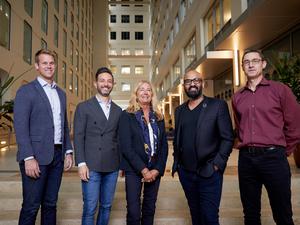
When four-year-old biotech startup Cellarity emerged from stealth in December 2019, it laid out an ambitious vision: to combine cellular biology with machine learning to develop treatments for all diseases.
Now, several high-profile investors are joining founding investor Flagship Pioneering in supporting Cellarity's approach. The Cambridge-based startup just closed a $123 million Series B round from funds and accounts managed by BlackRock, The Baupost Group and Banque Pictet on behalf of their clients, plus eight other investors and Flagship.
With the funding, Cellarity plans to double in size this year to about 120 employees, move to a new headquarters in the Boston area in the second half of 2021 and further advance its drug discovery programs.
Cellarity's platform works by studying cellular behaviors, rather than pinpointing targets specific to individual diseases. Key to the startup's platform is what it calls "Cellarity Maps." The technology maps out a cell and its behaviors using a network biology approach, generating high-resolution data on and insights into how a cell moves from a state of health to a state of disease. Machine learning then provides a hefty assist to design drugs that will effectively target a diseased cell.
Cellarity's founders believe the platform can make the entire drug discovery and development process much more efficient, potentially shaving up to four years off the drug development process.
"We have this approach that can literally be applied to any disease," said Fabrice Chouraqui, CEO of Cellarity and a CEO-partner at Flagship Pioneering. "[We wanted] investors which would be committed to the long run, which would really allow Cellarity to grow and apply the platform in various drug areas and not just solve one problem or one area."
Today, Cellarity has seven drug discovery programs in four different disease areas: hematology, immuno-oncology, metabolism and respiratory illnesses. Those four were deliberately chosen to showcase the breadth of Cellarity's potential, "to showcase the vast application of this cell-centric approach," Chouraqui said.
"Working at the level of the cell, which is the fundamental unit of life, we can better harness the complexity of human biology and treat complex disease," he added.







